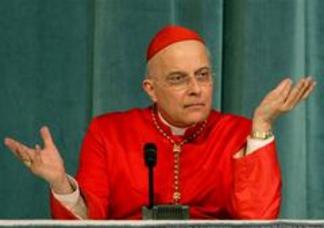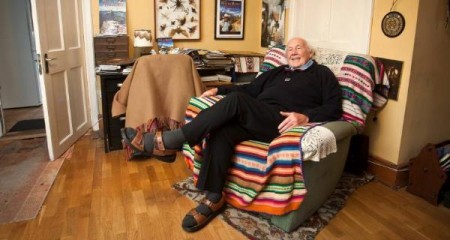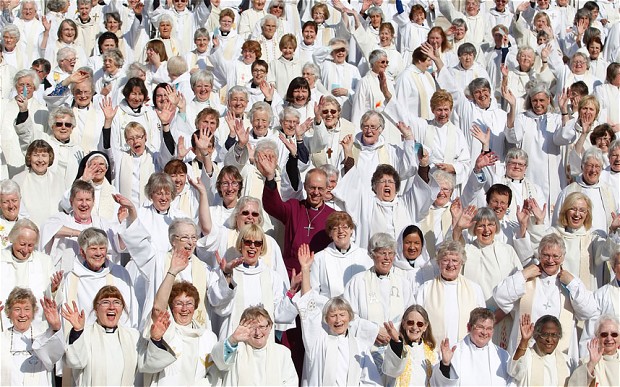Female clerics coached for bishop selection as Church of England prepares for historic change
Archbishops of Canterbury and York set to sign women bishops legislation into law in front of General Synod
By John Bingham
A string of senior female priests have been given special training to put them in prime position to become bishops in the Church of England when a historic change in canon law comes into force, the cleric who oversaw the process has disclosed.
The Rt Rev James Langstaff, the Bishop of Rochester, said there had been a major push to ensure that any female candidates interviewed for vacant sees in the coming months have the same chance as their male counterparts, some of whom may have been preparing for the process for years.
The decades-long campaign to open up the most senior positions in the Established Church to women will reach its conclusion when the Archbishops of Canterbury and York formally sign the change into law in front of the ruling General Synod in London on Monday
Members will also be asked to signal their approval in a show of hands for the legislation which they passed overwhelmingly in July and which has already received Royal Assent.
The first female bishops in England could be appointed before the end of this year if a handful of dioceses with vacancies for junior bishops – known as suffragans – move quickly. The timing has even led to speculation of a race to be the first.
The process of selecting the most senior bishops, those in charge of dioceses, involves a more lengthy process meaning that the first female diocesan bishop is unlikely to be announced before the New Year.
Yesterday Ladbrokes, the bookmaker, installed the Very Rev Jane Hedges, the Dean of Norwich, as favourite to become the first female bishop at odds of three to one.
The Church’s most senior lay official, the Secretary General William Fittall, told a Parliamentary committee in July that in cases where there was a tie between two equal candidates of opposite sexes, selection panels would be able to use a form of positive discrimination.
Bishop Langstaff, who was responsible for successfully steering the women bishops legislation through the Synod, disclosed that female would-be candidates had been given extra training to ensure they are as well prepared as men who may already have been through the process.
He told BBC Radio 4’s Sunday programme: “What we are doing is some affirmative action rather than discrimination in that some real efforts have been made and are being made to make sure that those women who now may be candidates are able to be, as it were, on the level with their male colleagues who have been looking at this for some time.
“Therefore developing women for senior leadership has been a strand which has been given attention for some months now, indeed for longer.
“It is important that women who are interviewed for these posts are able to be considered absolutely on the level with their male colleagues.”
The most senior diocesan bishoprics usually go to candidates who already have experience of the episcopate having served as suffragans.
But Bishop Langstaff said there was no reason female candidates could not jump straight into one of the more senior roles after the law changes. Three years ago the then Dean of Liverpool, Justin Welby, was announced as the new Bishop of Durham, the fourth most senior post in the Church. He was in the role for only around a year when he was called to serve as Archbishop of Canterbury.
“Just as it is possible for men in the past to go straight from being vicars of parishes or from other roles in cathedrals to being a diocesan bishop there is no theoretical reason at all why a woman shouldn’t,” said Bishop Langstaff.
“We have got some very very experienced, very spiritual women in senior posts so it is not impossible.”
Complete Article HERE!
Chicago Archdiocese Offers Sex Abuse Data
By MITCH SMITH and MICHAEL PAULSON
CHICAGO — The Roman Catholic archdiocese here released thousands of internal documents on Thursday that detailed decades of sexual abuse by its priests, a disclosure timed just days before the retirement of the current archbishop.
The files, some of which show past church leaders permitting clergy accused of abuse to continue working, describe complaints against 36 priests, many of whom are now dead and none of whom remain in active ministry. Nearly all of the alleged abuse occurred decades ago, though in several cases the accusers waited years to come forward.
Cardinal Francis E. George, the Archdiocese of Chicago’s current leader, had promised to make the documents public. That pledge became more urgent when Pope Francis accepted the cardinal’s retirement and appointed Blase Cupich, currently the bishop of Spokane, Wash., to replace him later this month.
The priests whose personnel files were posted online Thursday have long been publicly identified by the Chicago archdiocese as having credible complaints of sexual misconduct against them.
In a statement, David Clohessy, the director of the Survivors Network of Those Abused by Priests, criticized the archdiocese for not releasing the documents earlier. The roughly 15,000 pages published Thursday included graphic descriptions of abuse and, in some cases, evidence of a less-than-swift response from church leaders.
In the case of the Rev. John W. Calicott, parishioners objected when the priest was temporarily removed from ministry in the 1990s over abuse allegations concerning acts in the 1970s.
The priest’s support from his congregation — and his contention that he should be forgiven for long-ago acts — were well chronicled at the time. But the letters and petitions released Thursday show the intensity of the pushback, including some concerned about the impact of Father Calicott’s case on African-American Catholics, because he and many of his parishioners were black. Cardinal Joseph Bernardin, then the archbishop, reinstated Father Calicott, with restrictions. His successor, Cardinal George, removed him from ministry.
Documents related to 30 other Chicago-area priests accused of sexual abuse were released in January. Those papers were examined by both the archdiocese and the law firm of Jeff Anderson, who has represented numerous victims of clergy abuse.
Mr. Anderson did not examine the most recent files in advance, and said he viewed Thursday’s release “with a great deal of suspicion and skepticism” because of what he considered a lack of outside scrutiny. But archdiocese officials said Thursday’s disclosure represented a desire to speak openly about past wrongdoing. “As we said in January, we are committed to transparency with the people we serve,” Cardinal George said, adding, “Child abuse is a crime and a sin.”
Complete Article HERE!
Church ‘leaving falsely accused priests in limbo’
By Caroline O’Doherty
A Catholic priest found not guilty of sexually assaulting a teenage girl is embroiled in a row with his order and the Archbishop of Dublin over claims they are punishing him for being accused.
Carmelite father Chris Conroy, 81, who is banned from saying public Mass and is defying orders to leave his family home and live in a monastery, says the Catholic Church has its own “Guantanamo Bay” for falsely-accused priests.
The former missionary from Co Wicklow, who was the subject of an award-winning documentary about his work with the Indians of the Peruvian Andes, says he has been in limbo for the last 10 years since his court case ended.
In his memoirs, to be launched next month, he accuses Archbishop Diarmuid Martin of interfering without authority to have him prevented from saying Mass and says his Order has shown undue deference to the Archbishop in attempting to impose other restrictions.
“This is why I wrote the book. I had to make a stand,” he said. “I spent my time in Peru fighting and putting my life on the line for the poor Indians and the suffering and injustice that they were enduring.
“Then I came back to Ireland to injustice and I said I’m not going to accept this, especially in the Church that I love and in the Carmelite Order that I love.”
In a statement, Archbishop’s House said it was not the practice of the archdiocese to comment on individual cases involving allegations of child sexual abuse.
Head of the Carmelites in Ireland, Fr Martin Kilmurray, however, said the memoirs contained “gross inaccuracies” about Fr Conroy’s dealings with the leadership of the order and with the archbishop.
Fr Kilmurray said he was “deeply concerned” that details of the case involving the teenage girl had been reproduced in the book.
“We see this as a blatant disregard for the wellbeing and right to privacy of this person. We have initiated contact with her, with a view of offering pastoral support,” he said.
Fr Conroy said he bore his accuser no ill will but he had to recall the case to illustrate the risks to clergy from unfounded accusations and their own hierarchy.
“Every priest in Ireland should read my book because it could happen to them tomorrow. I’m very lucky in one sense because I was accused publicly, I went to the public court and I was acquitted publicly.
“Supposing I had been accused and it didn’t go to the court and the Church was just dealing with it. I’d be in limbo forever. The Church doesn’t know how to deal with these types of cases.”
Complete Article HERE!


